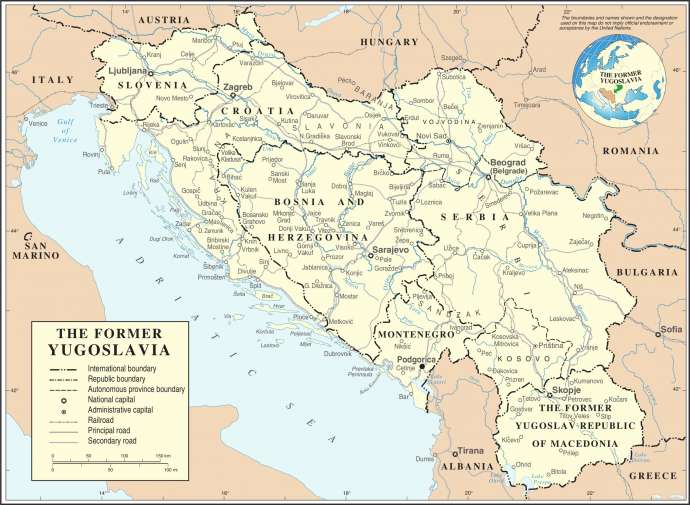STA, 29 June 2021 - It is exactly 20 years on Tuesday since an agreement was signed by the countries successors to Yugoslavia to divide the obligations and property of the former common state. The office of the high representative for succession has told the STA that Slovenia is constantly striving for active resolution of open issues.
The agreement, mediated by the international community, was signed on 29 June 2001 in Vienna by the foreign ministers of Slovenia, Croatia, Bosnia-Herzegovina, Federal Republic of Yugoslavia (legal successor is Serbia) and Macedonia (now North Macedonia).
Ten years after the break-up of Yugoslavia, it was the first succession agreement, and a peace treaty of sorts, as it was the first agreement to be signed by all five successors. It entered into force three years later, when it was ratified by Croatia as the last country to do so in June 2004.
The agreement regulates division of movable and immovable property of the former Yugoslavia, consular and diplomatic representations, financial issues, archives, social security, pensions, private property and acquired rights.
The shares obtained by Slovenia in various fields reach from 14% to 16.39%, and constant talks and negotiations are taking place in relation to the implementation of the agreement both between the successors and with third countries.
On the occasion of the anniversary, the office of the high representative for succession Miha Pogačnik said that Slovenia and its authorised representatives were constantly striving for active resolution of open succession issues.
These are unresolved issues from the past, whose closure would contribute to reconciliation and improvement of regional cooperation, it said.
Slovenia has already received the bulk of the financial property of the former Yugoslavia it is entitled to in the forms of cash, gold and other precious metals, foreign currency deposits in foreign commercial banks and securities.
This property obtained by Slovenia is estimated at a total of EUR 220 million, and does not include the Triglav patrol boat that was acquired in 2011 as part of a clearing debt from Russia.
Slovenia has also obtained 83% of the former diplomatic and consular offices of the former Yugoslavia it is entitled to - in Washington, Rome, Milan, Klagenfurt, Brasilia, Morocco, Mali, Tanzania and Guyana.
The country got around US$3.5 million from the sale of a residence in New York and the embassies in Tokyo and Bonn that the successor countries have sold together. The procedures to sell the building of the former embassy in Bern and the permanent representation in New York are under way.
Slovenia has so far also taken over around 230 works of art by Slovenian artists that were located in diplomatic and consular representations around the world.
It has also assumed more than 100 original copies of international treaties signed by the former Yugoslavia that relate exclusively to the territory of present-day Slovenia, and documentation related to borders with Italy, Austria and Hungary.
The office of the high representative for succession also noted that Slovenia is the initiator of a project to digitalise the joint archival material of the former Yugoslavia that would enable all successors to access copies.
At the last meeting of the high representatives in November 2019 in Zagreb, all successors endorsed the proposal from Slovenia that funds for the project are obtained also from international financial resources.
The office also emphasised as an important achievement the start of talks with Serbia about the succession to cultural heritage items located in institutions of Serbia and that, in accordance with the agreement, belong to Slovenia.







